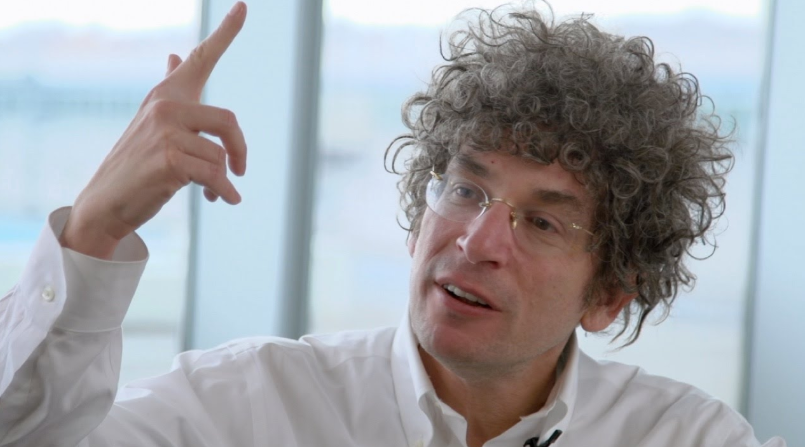Should more traditional companies embrace blockchain technology and tokenization?
A reverse ICO occurs when a pre-established company expands by launching an ICO via a token crowdsale to raise funds
Bitcoin isn’t what’s going to change the world, but the technology behind it is. This technology is called the blockchain, which is a digital ledger that can’t be corrupted and is 100% decentralised. And the first world-changing technology that will be built on this amazing new development is cryptocurrencies.
This industry’s moving towards becoming a major financial mechanism, but this growth is being slowed down by cryptocurrency’s extreme volatility which causes most traditional investors to stand on the sidelines and watch with interest, rather than take part. I can hardly blame them, as the mass adoption of cryptocurrencies in established companies is such a new event.
Just four years ago I had a brief chance to visit the Guangzhou Trade Fair. For those unfamiliar with the Canton Fair, you could think of it as one of the hottest places to do business in southern China. It’s as large as 71 Walmart supercenters and features over 150,000 different types of products and deals. From memory, there were no blockchain-enabled companies exhibiting.
But there was a Slovakian company, Virtuse Group, announcing the debut of a new Chinese Emissions Exchange (CEEX), led by CEO Ras Vasilisin (pictured below).

I was instantly intrigued because Virtuse Group had just become the first foreign Emissions Trading System (ETS) in China, having launched their very own global emissions exchange. To some, this may seem like something small, but I assure you it’s not.
Then, when you factor in things like the complexities of the Chinese legal system, politics and cultural barriers, it’s clear Virtuse Group had achieved something that was kind of remarkable.
Established Company + Blockchain = A Reverse ICO
Now, four years later, Virtuse Group has expanded into the blockchain by doing what has recently been popularized as a Reverse ICO.
Normal ICO’s vs. Reverse ICOs
A normal ICO typically occurs when a young or new company raises funds to either build a product or expand their product development, marketing, and pay their team a salary. Normal ICOs are looking to scale.
Proof, a South Korean ICO similar to Virtuse Group, recently raised $3.1M in their token sale to scale the platform and community. Their crypto-exchange is supported by fiat-pegged tokens, smart contracts and Ethereum inflation buffers which can never be shut down.
With a normal cryptocurrency exchange, the prices are often highly volatile, fluctuating daily and drastically for a variety of reasons such as trust, the media, innovation, regulatory responses and HODL’s.
Comparatively, a reverse ICO occurs when a pre-established company expands by launching an initial coin offering (ICO) via a token crowdsale to raise funds. Companies already have capital, infrastructure, technology, and users behind them, drastically minimising investor risk. Reverse ICO’s already have the ability to scale.
Virtuse Group already has scale after being successful in Europe and Asia, and are expanding through a Reverse ICO by creating a new crypto-exchange called “Virtuse Exchange”.
Virtuse Exchange enables the virtual trading of real-world assets, such as stocks, bonds, and commodities, which will provide a much-needed level of stability to the cryptocurrencies that will be traded on their exchange.
Shedding Light on Recent Trends
American hedge fund manager, entrepreneur, venture capitalist, and best-selling author James Altucher says, “One big problem with cryptocurrencies now is their volatility. At least one — basecoin — will likely dramatically reduce that in 2018”.

James Altucher
Altucher gave an insightful analysis of where we are at right now, and it’s surprisingly very accurate. According to Altucher, BC stands for ‘Before Crypto,’ and AC stands for ‘After Crypto’; “We’re in AC right now, and the world is about to change”.
On the 24th May 2018, The Monetary Authority of Singapore (MAS), which is also looking to restore investor faith, issued a warning to eight digital token exchanges in Singapore to immediately cease trading until they’ve been authorised as an approved exchange by MAS.
Singaporean crypto investors should heed the MAS warning and ensure that the platform they’re investing in is compliant with Singaporean legislation.
Today, there are now over 1,600 cryptocurrencies, with new ones being created each week. From what I can see the rise of the reverse ICO is a very positive sign and I hope it will be one that can assist in bringing stability to this promising new technology.
—-
e27 publishes relevant guest contributions from the community. Share your honest opinions and expert knowledge by submitting your content here.
Photo by Jordan Rowland on Unsplash
The post Should more traditional companies embrace blockchain technology and tokenization? appeared first on e27.



